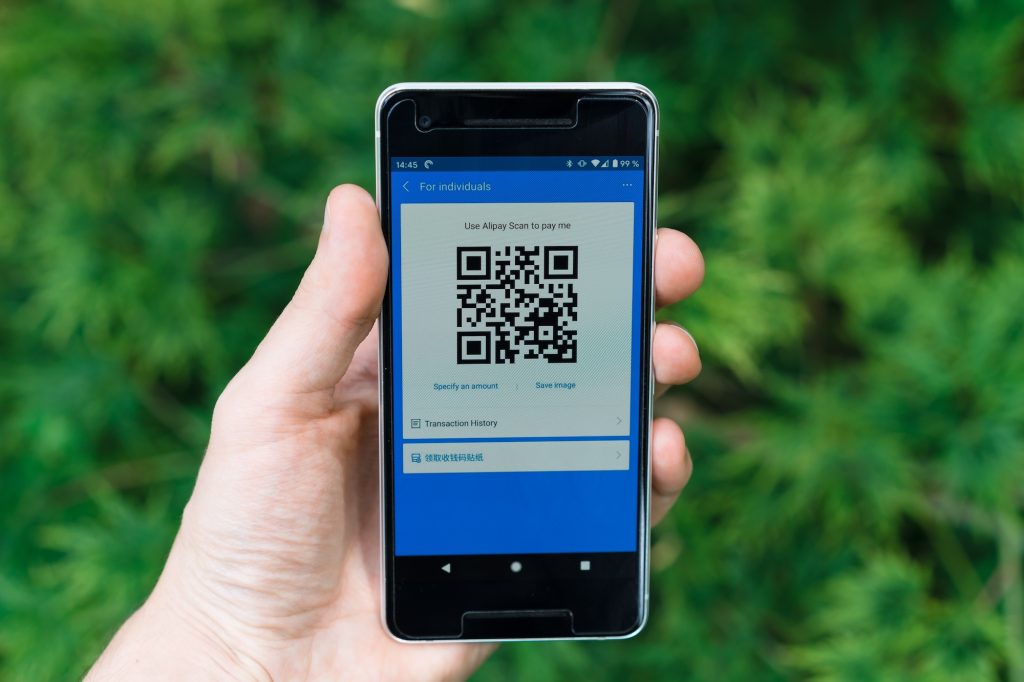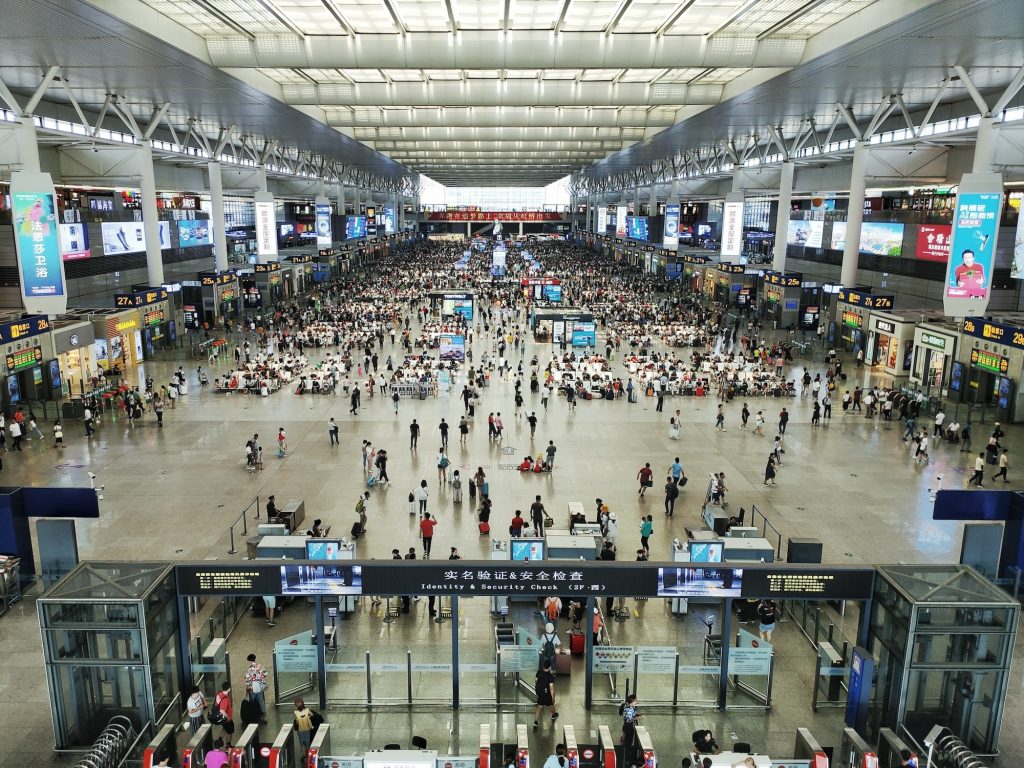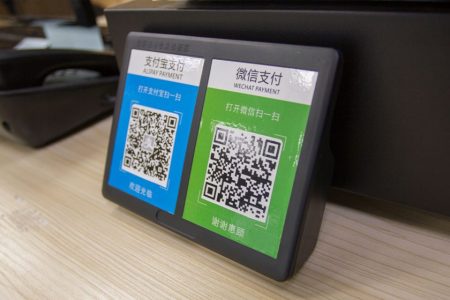It’s a daily occurrence all over China. A newly arrived foreign traveller walks up to a store counter and tries to pay for a coffee, or some gum, or a bottle of water, with cash. The store doesn’t accept cash. In fact, almost nobody does. The traveller proffers an international credit card that is also refused. Thankfully a local companion steps in and settles the bill with a wave of a phone.
It isn’t just mobile payments that can cause problems. The visitor tries to use Google Maps to find their way to a local attraction – but Google Maps doesn’t work. Google Translate won’t load, otherwise they could ask a passerby, and Uber isn’t working, so they can’t hail a ride. They would WhatsApp a local friend for directions, but everyone is on China’s WeChat messaging platform instead.
China’s vast population supports a digital universe that is entirely the country’s own. Instead of X (formerly Twitter) people use Weibo. They eschew Instagram for Xiaohongshu. And the list goes on.
For visitors, this means getting used to possibly unfamiliar Chinese apps – especially the six listed below. If you’re coming from outside the mainland, and you want your trip to go smoothly, don’t leave home without them.
Alipay (支付宝) or WeChat (微信)

Mobile payments are so prevalent in China that cash is considered a liability, with some taxi drivers and vendors even refusing to take physical money, despite it still being legal tender. The sheer convenience of mobile payments is the reason for their ubiquity. That means Alipay or WeChat should be at the top of your download list when planning a trip to the Chinese mainland.
On the surface, both apps have similar functions, as they can be used to make electronic payments by having the customer scan a vendor’s QR code or vice versa. However, there are fundamental differences, as Alipay focuses more on e-payment and financial services, whereas WeChat is more geared towards social media, with mobile payment built-in as a secondary service. (As a matter of fact, when the first version of WeChat was released in 2011, it was exclusively a chat application, and it was not until 2013 that its digital payment system, WeChat Pay, was introduced.)
[See more: Electronic payment app MPay will be accepted in more than 40 countries next year]
Despite such differences, WeChat Pay and Alipay are both widely accepted throughout China. The latest versions of the apps allow foreign users to link their international credit cards to their account, which removes the earlier hurdle of having to set up a Chinese bank account. Having said that, successful payment by international bank cards via the apps can be hit and miss depending on the merchant, and there are caps, fees and restrictions that foreign users need to be mindful of.
In addition to cashless payment services, the two super apps offer a range of mini programs that allow users to do everything from calling a Didi (China’s version of Uber) to booking a hotel or plane ticket.
Apple Maps (苹果地图) or GaoDe DiTu (高德地图)

Navigating your way around a new area in China can be downright daunting and confusing, especially if you can’t read Chinese characters. However, it doesn’t have to be that way thanks to the wide range of map apps available.
For non-Chinese readers, Apple Maps is one of the better options, as it is not blocked (unlike Google Maps) and comes in English, featuring all the functions that one would expect in any good map app, including transit directions to your destination. Due to government restrictions, however, the app will only show transit data when you are using a Mainland Chinese SIM card or accessing the internet in mainland China. It is also important to keep in mind that while Apple Maps may be useful for finding major landmarks and metro stations, China’s rapidly changing landscape means that the app is not always one hundred percent accurate.
[See more: Here are 10 of the best things to do in Zhuhai]
Alternatively, there is the option of using one of the local map apps such as GaoDe DiTu, which has the most detailed and up-to-date information. The downside to this is that GaoDe DiTu is only available in Chinese, although it is capable of registering many English and pinyin searches with its Chinese equivalent.
Regardless of whichever map app you choose, make sure you have the address to your destination written in legible Chinese, so that if push comes to shove, you can at least hail a taxi and get to where you need to go. Just make sure you have Alipay or WeChat downloaded first (see above).
VPN (虚拟专用网络)

Some of the most popular foreign websites such as Facebook, Google and YouTube are blocked in China due to the infamous Great Firewall of China (GFW). A virtual private network (VPN) can be used to circumvent the firewall, allowing you to keep in contact with family and friends, as well as access useful services such as Google Maps.
[See more: Macao’s prize-winning 5G Smart Campus Network launches at MUST]
There are a multitude of VPN service providers, with some of the biggest names in the business being ExpressVPN, Astrill and NordVPN. Monthly plans can range anywhere from USD$12.95 to as high as USD$30.
Admittedly, VPN services are not always stable in China, meaning that there will be periods when it will be difficult to establish a connection.
Trip (携程)

Trip is one of the most popular travel service apps in China and has an English version. It allows you to do everything from booking hotels, planes and high speed rail tickets to renting a car and arranging tours.
Foreign visitors to China need not worry about the payment methods, as the app accepts not only WeChat and AliPay, but also a range of bank cards such as Visa and Mastercard. Trip.com is also known for its good customer service.
[See more: Here’s what to do if you lose your Macao passport while travelling]
Pro tip: When booking a plane or train via the app, do keep in mind that you will be given a confirmation receipt that you need to use to collect your ticket at the counter in person.
Baidu Translate (百度翻译)

One of the most nerve wracking parts of visiting China for many foreign travellers is dealing with the language barrier. Although China has approximately 400 million people learning English, don’t expect the language to be widely spoken.
Thankfully, for those who don’t speak Mandarin, things have come a long way since the days of pocket phrasebooks. These days, Google Translate is arguably the most popular choice, but don’t expect it to work in China unless you have access to a VPN.
[See more: UM-developed Cantonese-Putonghua translation system now available]
Baidu Translate is your safest bet for a stable and reliable translation app. The app is in Chinese, but the language options are written in English, with a clear interface that will allow those who have used Google Translate to figure out its basic written translation function. If you have decent Chinese reading skills or are willing to play around with the app, there are other more powerful and useful options, including photo translation and real time voice translation.
12306 China Railway (中国铁路 12306)

In the course of only a few decades, China has built the world’s most comprehensive and widely used high speed railway network. With a total length of 43,700 kilometres as of November 2023, the system is highly recommended for any travellers wishing to travel across the country in a quick, safe and affordable manner.
To book a ticket, it is possible to use third-party apps, including the aforementioned Trip.com. A service fee does apply when using such programs. However, there is an official train service booking app called Railway 12306, which sells tickets without mark-up.
[See more: The feasibility of connecting Macao to the high-speed rail network is being studied]
Originally, Railway 12306 was a source of headache for non-Chinese users, as it was available only in Chinese and featured a restrictive registration process and limited payment options for foreigners. The app has since been optimised, with an English language version that accepts a range of payment methods ranging from credit cards to AliPay and WeChat.






